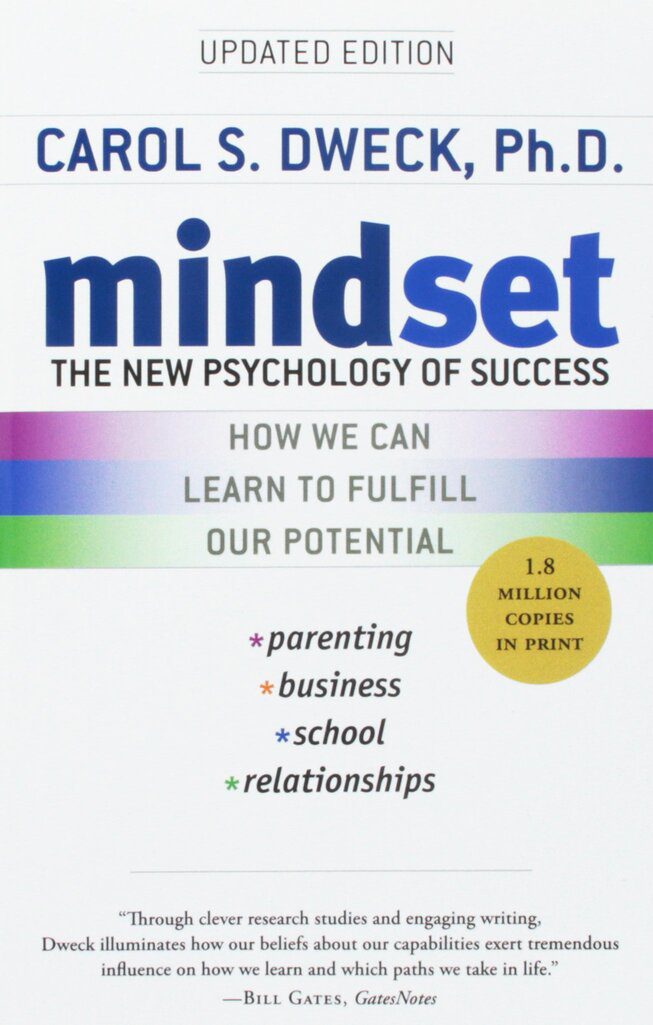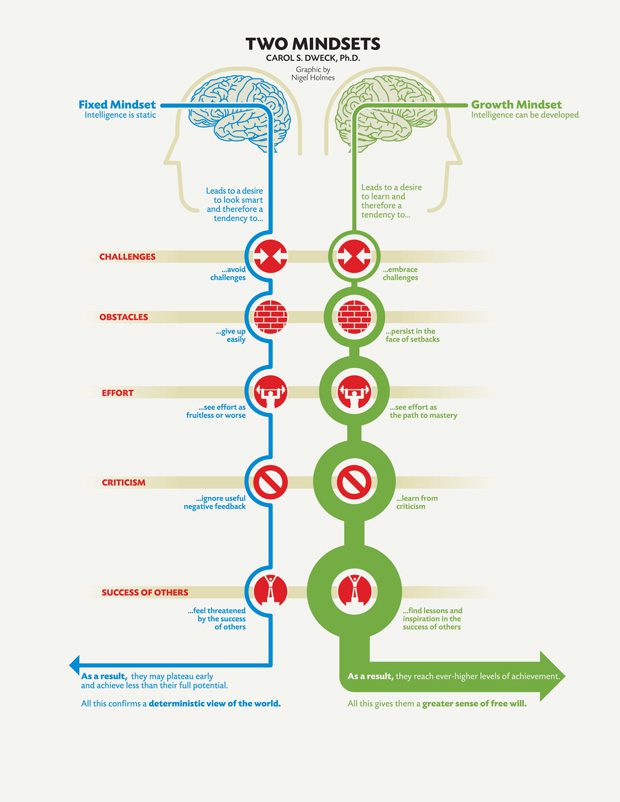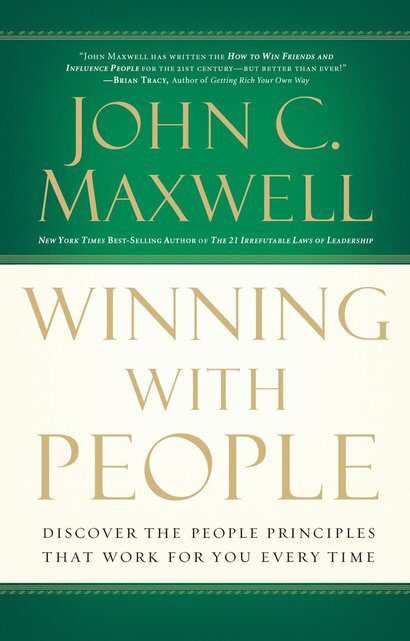American radio speaker and author Earl Nightingale asserted, “One hour per day of study in your chosen field is all it takes. One hour per day of study will put you at the top of your field within three years. Within five years, you’ll be a national authority. In seven years, you can be one of the best people in the world at what you do.” My personal development journey started when I heard these great words by Natingale, and it has changed my trajectory, outlook and worldview ever since. To change your life, you will have to change your mindset; we are the story we tell ourselves. Nothing moves until you move; to change outwardly, you will have to change inwardly. Leadership is an inside job.
“The test of a first-rate intelligence is the ability to hold two opposed ideas in the mind at the same time, and still retain the ability to function. One should, for example, be able to see that things are hopeless and yet be determined to make them otherwise.”—F. Scott Fitzgerald
From a very young age, we all get indoctrinated, programmed, domesticated and taught to behave in a certain way by our caregivers (parents, teachers, siblings, and society). This indoctrination stays with most of us for the rest of our lives as we never get to question the scripts handed to us by our caregivers. Have you ever sat down to reminisce about where most of your thinking pattern came from, such as your view on money, procreation, religion, marriage,
Author James Allen quipped in his classic book As a man thinketh “A man’s mind may be likened to a garden, which may be intelligently cultivated or allowed to run wild; but whether cultivated or neglected, it must, and will, bring forth. If no useful seeds are put into it, then an abundance of useless weed seeds will fall therein, and will continue to produce their kind.” To change your lifes story, you need to start by changing your mindset and the stories you tell yourself about every situation that happens to you in life.
Italian diplomat and author of The Prince Nicolo Machiavelli observed, “Minds are of three kinds. One is capable of thinking for itself; another can understand the thinking of others; and a third can neither think for itself nor understand the thinking of others. The first is of the highest excellence, the second is excellent, and the third is worthless.

Research psychologist Carol Dweck, in her book Mindset: The New Psychology of Success, distinguishes between the two common types of mindsets: The Growth and Fixed Mindset. She writes:
Fixed Mindset
Believing that your qualities are carved in stone—the fixed mindset— creates an urgency to prove yourself over and over. If you have only a certain amount of intelligence, a certain personality, and a certain moral character—well, then you’d better prove that you have a healthy dose of them. It simply wouldn’t do to look or feel deficient in these most basic characteristics.
The Growth Mindset
There’s another mindset in which these traits are not simply a hand you’re dealt and have to live with, always trying to convince yourself and others that you have a royal flush when you’re secretly worried it’s a pair of tens. In this mindset, the hand you’re dealt is just the starting point for development.
This growth mindset is based on the belief that your basic qualities are things you can cultivate through your efforts, your strategies, and help from others. Although people may differ in every which way—in their initial talents and aptitudes, interests, or temperaments—everyone can change and grow through application and experience.

People with a growth mindset tend to think of their intelligence as flexible and able to be expanded with knowledge, effort, and practice. While people with a fixed mindset see intelligence within boundaries, those with a growth mindset view their potential as boundless.
By developing a growth mindset, one sees every situation in life as a learning experience. Author Les Brown often said, “Life is a fight for territory, and once you stop fighting for what you want, what you don’t want will automatically take over.” To make long-lasting changes in your life, you will need to change your frame of reference, mindset and perspective.

In Winning With People: Discover the People Principles That Work for You Every Time, author and Leadership expert John C. Maxwell shared a story that exemplifies the importance of perspective. He writes:
A Coloradan moved to Texas and built a house with a large picture window from which he could view hundreds of miles of rangeland. When asked how he enjoyed the view, he responded, “The only problem is that there’s nothing to see.” About the same time, a Texan moved to Colorado and built a house with a large picture window overlooking the Rockies. When asked how he liked it, he said, “The only problem with this place is that you can’t see anything because all those mountains are in the way.”
The story may be a little exaggerated, but it points out a truth just the same. What people see is influenced by who they are. People in the same room will look at the same things and see everything totally differently. Each of us has his or her own bent, and that colors our view of everything. What is around us doesn’t determine what we see. What is within us does.
Each of us has his or her own bent, and that colors our view of everything. What is around us doesn’t determine what we see. What is within us does.
WHO YOU ARE DETERMINES HOW YOU SEE OTHERS
A traveller nearing a great city asked an old man seated by the road, “What are the people like in this city?
“What were they like where you came from?” the man asked.
“Horrible,” the traveller reported. “Mean, untrustworthy, detestable in all respects.”
“Ah,” said the old man, “you will find them the same in the city ahead.”
Scarcely had the first traveler gone on his way when another stopped to inquire about the people in the city before him. Again the old man asked about the people in the place the traveler has just left.
“They were fine people: honest, industrious, and generous to a fault,” declared the second traveler. “I was sorry to leave.”
The old man responded, “That’s exactly how you’ll find the people here.”
The way people see others is a reflection of themselves.
If I am a trusting person, I will see others as trustworthy.
If I am a critical person, I will see others as critical.”
“If I am a caring person, I will see others as compassionate.
Your personality comes through when you talk about others and interact with them. Someone who doesn’t know you would be able to tell a lot about who you are based on simple observation.
Meditation
- Daily Calm with Jay Shetty – Falling off Track
- The song of life is comprised of high and low notes, sometimes we get into a groove, and it is easy to commit to our healthy habits. We meditate every morning, jog three times a week, and cook at home every night; but then something disrupts our routine, perhaps a family member gets sick or we receive a big work assignment with a tight deadline. As we spread our time a little thinner, we find ourselves ordering takeout, staying up late and skipping meditation. But the real danger is not the break in our healthy habits; it is how we view the disruption.
- It is important to have the discipline to stick with our commitments, but an all-or-nothing mindset can lead us down a path of self-judgment, and that can bring out critical feelings like am a failure for missing a few days, or I can’t keep this up every day, so why bother. We dwell on the negative rather than focusing on the many days before we make it to practice. If we can temper our practice with a little softness, we are more likely to keep up our practice. The trick is to be diligent but realistic, firm but forgiving. With this approach, a break is not a failure but a mere intermission amid the symphony.
Beyond a wholesome discipline, be gentle with yourself.
- Daily Jay with Jay Shetty – Explain Yourself
- Often, we assume that others have a direct view of our minds. We often presume that those we are close to understand us better than they do; we expect that our thoughts are obvious and we shouldn’t need to say more – psychologists call this egocentric bias.
Podcast
- Russ ON: Toxic Masculinity, Music & Mental Health: “My Songs Were Cries For Help”
All the Best in your quest to get Better. Don’t Settle: Live with Passion.



Comments are closed.